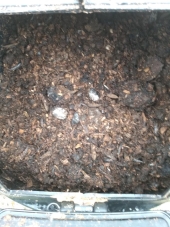
 1
1




I want to be 15 again …so I can ruin my life differently.
 3
3






 1
1




No-Dig Vegetable growing techniques for the urban gardener
 1
1




Please give me your thoughts on my Affordable, double-paned earthbag window concept

















 2
2








Castaway Compost - Yer Trash be Treasure! castawaycompost.com





Blog: 5 Acres & A Dream
Books: Kikobian Books | Permies Digital Market
 1
1




 1
1




Leigh Tate wrote: My two big no-nos are weeds with seeds and wiregrass (invasive Bermuda grass). Those things never go into the compost.












 1
1




s. lowe wrote:
Leigh Tate wrote: My two big no-nos are weeds with seeds and wiregrass (invasive Bermuda grass). Those things never go into the compost.
What do you do with those things? What does anyone do with those noxious invasive rhizomes?
Currently I live in a rental that comes.with bi weekly yard waste that goes to the municipal.compost operation. I throw all my bind weed and Himalayan blackberry cuttings in there.
Blog: 5 Acres & A Dream
Books: Kikobian Books | Permies Digital Market

|
A tiny monkey bit me and I got tiny ads:
Learn Permaculture through a little hard work
https://wheaton-labs.com/bootcamp
|



